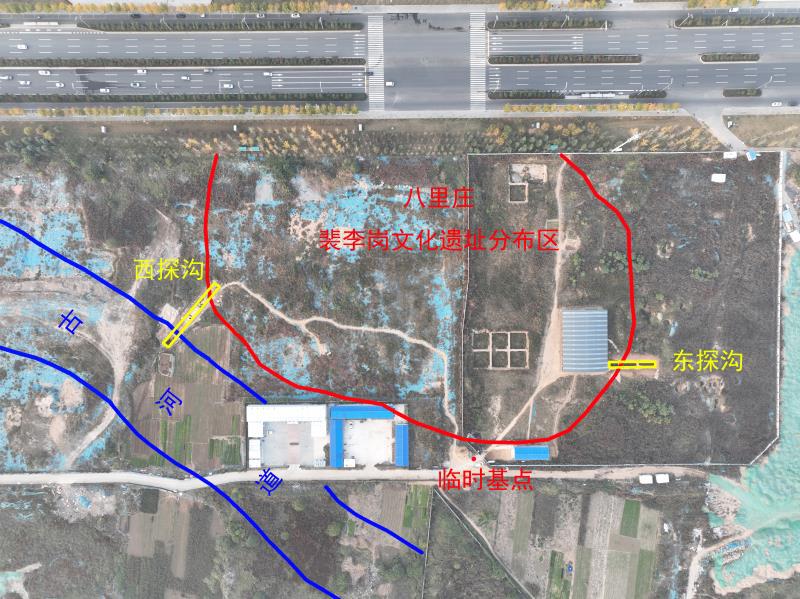Settlement goes back at least 7,000 years in Henan


An ancient settlement site dating to the middle Neolithic period was recently unearthed in Balizhuang, Anyang, Henan province.
A real-life picture of the inhabitants more than 7,000 years ago is unfolding based on abundant archaeological materials. The site — mainly involving the Peiligang culture — indicates that the people lived a stable life, had developed a handicraft industry and had mastered fishing and hunting skills.
Shen Wenxi, a deputy researcher at the Institute of Anyang City Cultural Relics and Archaeology, said the site is an irregular oval, with a maximum width of about 230 meters from east to west and a length of about 150 meters from north to south — about 27,000 square meters. Archaeologists estimate the site is between 7,400 and 7,800 years old, he said.
"On the southwest side of the site, we drilled out a fossil river course, which flowed roughly northwest to southeast, with a width of about 100 meters. Experts speculated that the people at the Balizhuang site lived by the river."
The whole site has clear strata, rich cultural relics and good preservation.
Archaeological explorations found that the red burned earth blocks were widely distributed in the area, most of which had plant stalk marks. Preliminarily analysis determined that these were likely earth wall fragments of houses.
Kong Deming, a team leader, said the remains of what appeared to be semi-underground cave foundations and several rectangular or oval ash pits were also found at the site.




